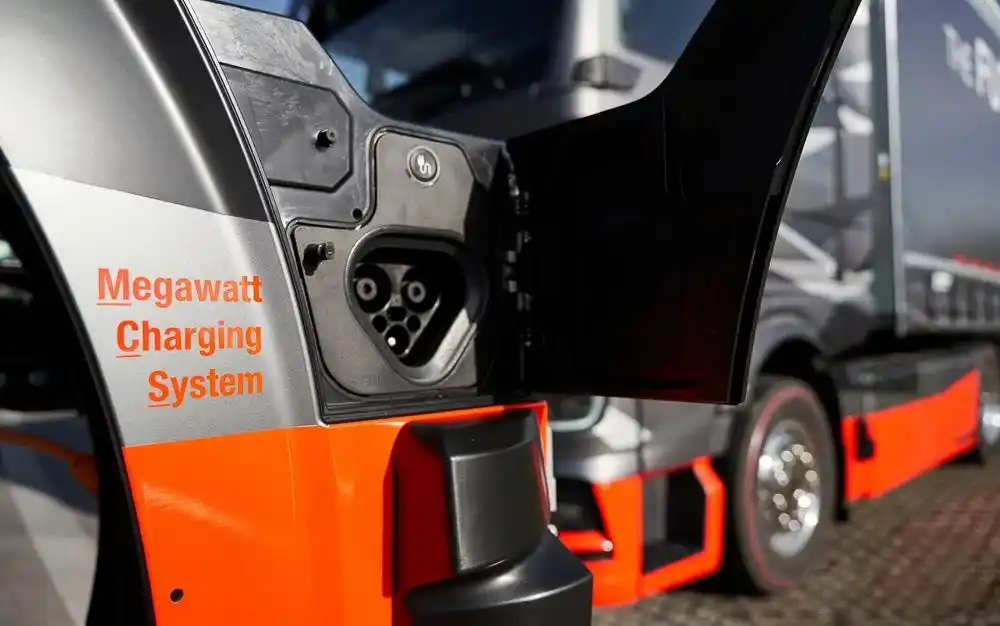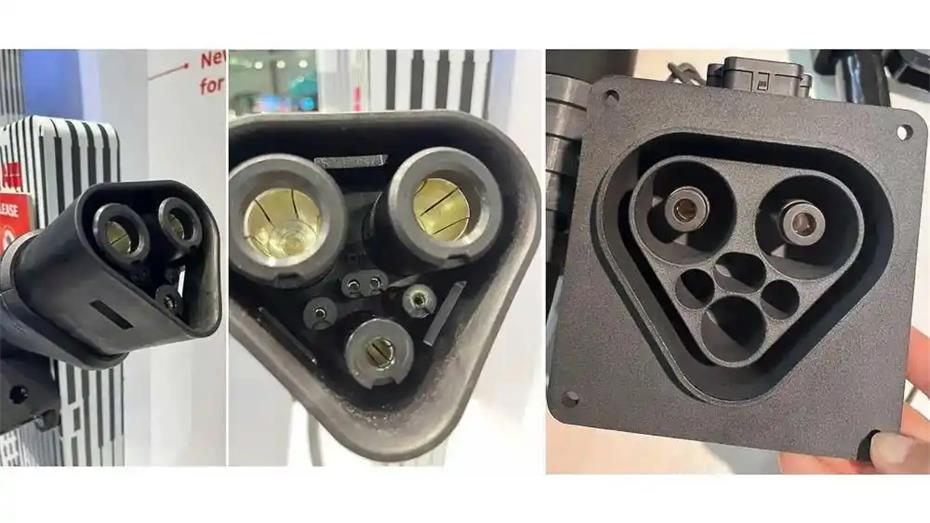When discussing the future of all-electric commercial vehicles, one term stands out: "megawatt charging." This refers to charging systems capable of delivering power at the megawatt level, known formally as the Megawatt Charging System (MCS). Leading electric commercial vehicles like the Mercedes-Benz eActros LongHaul, MAN eTruck, and Tesla Semi are already equipped with this technology.
What Exactly Is the MCS?
The MCS is a unified industry standard, not just any high-power charging setup. Developed by the CharIN Alliance—a group including automakers like Daimler, Volkswagen, Porsche, and industry bodies such as TUV—the system builds on the alliance’s earlier work on the CCS (Combined Charging System) used in Europe. In 2018, the alliance launched the HPCCV initiative to create a new standard for commercial vehicle charging. After submissions from companies like Tesla and ABB, a preliminary design was finalized in May 2019, evolving over time into the current MCS.

Interested in MCS EV Charging Product?
Megawatt Charging System (MCS) EV Charging Cable
Megawatt Charging System (MCS) EV Charging Inlet Port
We’re here to assist!
From our inception, prioritizing customer relationships has been central to our business approach—whether in sales, customer service, technical support, or personalized training.
Why Does the MCS Matter?
The MCS was created specifically to address the unique needs of commercial vehicles, shaped by the industry’s distinct challenges:
Battery Size vs. Efficiency: Commercial vehicles require large batteries to achieve long ranges, but these add significant weight, reducing payload capacity and profitability. To cut battery weight without sacrificing range, more frequent charging is necessary—and the MCS shortens charging times to avoid disrupting operations.
Flexible Charging Demands: Commercial vehicles charge unpredictably, depending on routes and driver rest breaks. Fast, convenient charging that doesn’t interfere with schedules is critical, and the MCS delivers exactly that.
What Does the MCS Look Like?
While MCS charging stations resemble standard ones, their sockets are redesigned. The latest V3.2 socket features an inverted triangular shell with 7 pins, grouped as follows:
Red Group: Two large top pins serving as main DC power supplies for the vehicle’s battery.
White Group: Four small central pins handling communication and detection, including confirming connections and controlling charging.
Green Group: One large bottom pin for vehicle body grounding (PE).
Per CharIN Alliance guidelines, vehicle-side MCS ports are typically installed on the driver’s (left) side, with charging stations designed to match this layout.
The MCS also integrates vehicle-to-internet systems and low-voltage power supplies. Due to its high power, the cable has a thicker cross-section and advanced water cooling—adding weight that could make manual handling cumbersome. CharIN’s plans address this by including automatic docking systems, where robots insert and remove the charging gun.

How Powerful Is the MCS?
Design specifications allow the MCS to reach 1250V and 3000A, totaling 3.75 megawatts. Currently, however, systems max out at 1 megawatt; achieving 3.75 megawatts will require upgraded infrastructure and better cable cooling.
EU regulations mandate 45-minute rest breaks for truck drivers every 6 hours. The MCS enables trucks to add over 400 km of range during these breaks, minimizing downtime.
Adoption and Expansion
Demonstration MCS charging stations exist in the U.S., Germany, and beyond, often with 3.75 megavolt-ampere capacities—on par with small power plants. In 2021, Daimler Trucks, TRATON, and Volvo Trucks formed a joint venture to invest €5 billion in a charging network. Governments like Germany and Sweden also support MCS expansion, though high equipment costs and strict grid requirements slow progress.
Beyond commercial vehicles, the MCS could extend to marine and aviation sectors. For example, Germany’s Lilium GmbH uses it to charge its Lilium Jets, which feature 900-kilowatt-hour batteries.
As European truck manufacturers equip their long-haul electric models with MCS, the system is poised to become a defining technology in sustainable transportation.
Hottags: #Megawatt Charging System #MCS #MCS charging cable #MCS charging inlet port




 Senku ,Bake
Senku ,Bake Senku
Senku